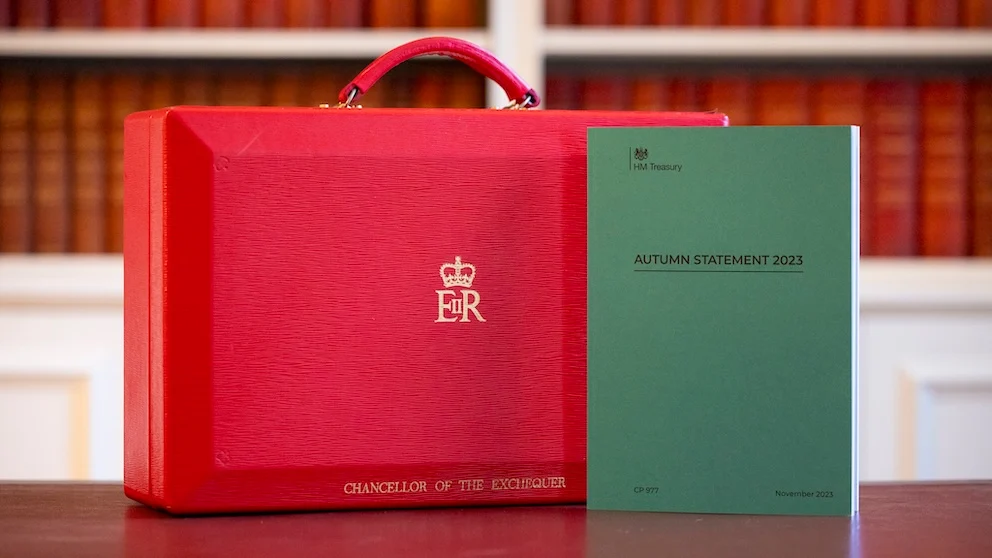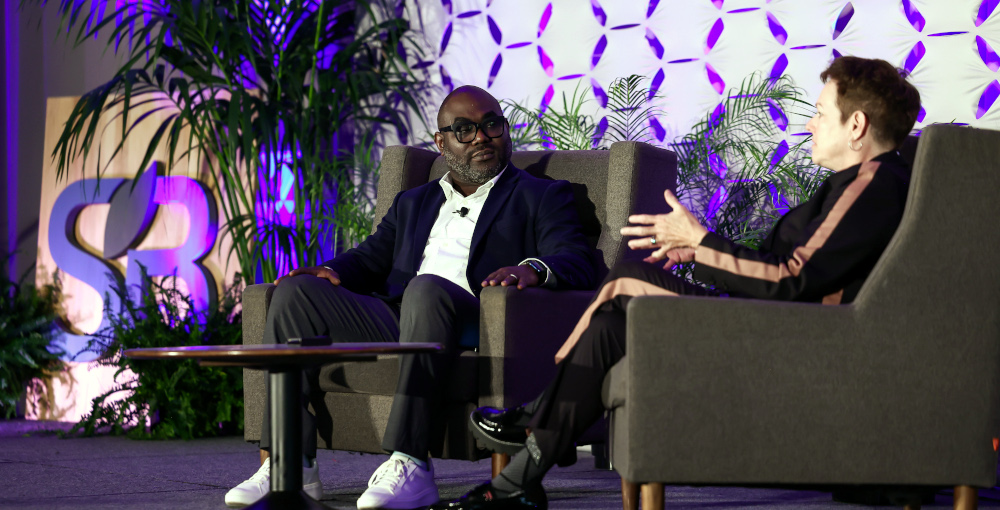Here we go again. The Mail has conducted an audit of ten search terms relating to Boris Johnson and concluded that Google is biased to the left-wing, and the Culture Secretary has vowed to act.
If this sounds familiar it’s because it’s a direct lift from the Trump playbook. And the sentiment isn’t exactly new. It’s a tempting narrative, combining tech paranoia with the old “Bolshevik Broadcasting Corporation” jibe.
I work in the world of Search and PR, where my job is about unravelling how Google works, as well as using tech and data to understands communications, so I couldn’t resist taking the time to unpack the idea of Google bias.
There’s quite a lot to consider here. Firstly, the methodology for the audit and the motivation for the piece, and then there’s a whole debate about relativism and the concept of bias, where I could explore the academic studies into Google bias. However, I’m going to try stick to the basics to explain a little bit about how Google works, why it can’t simply be changed, and what you can do to keep on Google’s good side.
No one at Google knows exactly how Google works
I am what’s known as an SEO expert, or someone who works in Search Engine Optimisation. I was previously at a “rank tracking company”, essentially a grey market tech company, which tracks millions upon millions of Search terms, and the websites that rank for them. We specialised in trying to reverse engineer Google’s “ranking factors”. So, if we change things on a website, how might this change Google’s rankings. We’d also pick through patents, run countless tests, and talk to our clients. But the issue with my knowledge is this:
“In 2020, Google made 4,500 changes to search. This number includes changes to its ranking system, user interface and more. Plus, Google ran more than 600,000 experiments. That means Google search is changing, on average, 12 times per day.” Source – Search Engine Land
So, all I could ever achieve was a pragmatic understanding of Google, and from an outsider’s perspective. However, this is also the case for Google engineers. Firstly, the algorithm is too complex for any one person to understand it. Secondly, for intellectual property and security reasons, it would be bad business for Google if their employees had a full understanding.
We’d often find ourselves at opposing ends with Google spokespeople. A statement would be released saying one thing, of which all our data pointed to the exact opposite. I don’t know why this was, but it was telling, and I’ve always suspected it was (understandable) ignorance rather than misdirection.
So, in short, it’s a very complex system that’s not fully understood. If you don’t believe me. Here’s someone from Google saying they don’t fully understand Google.
Google is built on balancing biases, it’s sort of the point
“Google’s mission is to organise the world’s information and make it universally accessible and useful. That’s why Search makes it easy to discover a broad range of information from a wide variety of sources.” – Source
To “organise the world’s information” Google must get hold of it, then organise it. To organise information, Google has to make choices about what is most relevant. These are our ranking factors. Some will seem obvious and intuitive. For example, search terms should correspond to the writing on the page. And what if the exact search term was in the title of the piece? Stands to reason that’s more relevant than one where it’s in the third heading. They prioritise pages that load faster. Not obvious, but it makes sense, right?
Additionally, a government website or a university website has an advantage in Search, to rank higher. It’s less obvious, but also makes sense. 23 years ago, I don’t think that would have seemed like a political bias. However, in the last few years this kind of anti-intelligentsia discourse has reoccurred. Be it the Totalitarian governments of the 19th and 20th centuries, the Dark Ages, or modern Populism, attitudes change to what are fundamentally necessary decisions that a library, or a Search Engine, must consider in its sorting process.
I promised not to fall into relativism- and I failed – but this is important, decisions must be made, and not everyone will agree on these decisions. Maybe there is an absolute truth, but Google doesn’t know what it is!
PageRank (This is where it gets complicated).
Okay, so in as few words as possible, Google modelled the algorithm on academic principles. The more a paper is cited in academia, the better it is. Many citations mean it’s forming a touchstone of human knowledge, as a citation in another paper means to some level that another piece of knowledge is based on this.
Google decided then that if one webpage links to webpage this is a bit like a citation. The more links the better. Then they started to weight these links. So, if one website gets lots of links, it’s clearly important, authoritative even. Wikipedia (yay), the BBC (ooo), The Guardian (!) The Daily Mail (!!!) they get a lot of people linking to them. That means they’re somehow important. So, if they link to a webpage, they pass on more authority than joeblogs.com
This is fundamentally the most important part of how Google works. This is the core, the crux, the essence.
There are two important things to take from this. One, the idea was that culture, not Google directly, drives what ranks. They make tweaks, it’s not pure democracy, feel about that what you will, but it’s driven by culture at its heart. Two, this is ingrained into their system. It can’t be disentangled and changed.
Now I’m going to talk about their machine learning algorithm RankBrain…I lie. It would take 5000 more words than I’m allowed.
Why all this might lead to accusations of a left-wing bias
Pay walls
What’s the difference between The Guardian, BBC, The Independent and The Times, The Telegraph and The Sun? Political affiliation? No, pay walls. Right-wing media tends to sit behind pay walls. This makes the content less accessible. This means Google doesn’t really want to surface those websites. It doesn’t. Why would it? Secondly, it means they get less links. Less links means poorer rankings. Free means more links. GOOGLE IS BIASED TO SOCIALISM.
The FT is the first paywalled site on the list, sitting at 8th, the Telegraph at 10th
But the Mail and the Express aren’t pay walled. So why are they 16th and 20th? Well, it’s many things of course. But if you lean one way politically, you’re likely to link to sources that agree with your world view. By being more paywalled, right-wing press is at a fundamental disadvantage. There’s a bit of a snowball affect here. The issue is amplified because authority means more authority. By having a bit of their voice removed, it affects all of them.
Corroboration
This is relatively new, so I won’t delve too deeply here. But Google is increasingly adding the concept of corroborating sources to its algorithm. Essentially, if someone asks Google a question, it wants a degree of consensus among the answers, especially if it wants to be definitive. 9/10 sources may all say the same thing, but one source has all the link authority. Well, I believe it’s increasingly unlikely that the outsider will rank so highly.
For me, this is the biggest worry. Because while it stands to reason that consensus is a good way for a machine to decide on a correct answer, dissenting voices are fundamental to progress. That said, they’ve hopefully thought about this, and as I understand it, the corroboration is more a factor in questions with black and white answers.
Language Matching Bias
There is an inherent “bias” in the language we use. If I search in French, I’m expecting and getting French results. Google needs content to match to the language you use. So, this isn’t an issue in terms of political bias if you search “Boris Johnson”, but if you search “Boris Johnson liar” the results are going to bring up site that use the phrase “liar”.
This issue is most prominent in the world of dog-whistle phrases and conspiracy. If some microculture adopts a parlance, or builds its own nomenclature, that the rest of the media aren’t using, and people Google in these terms, then Google will struggle to show anything but this semi-secret language.
This can be problematic in comms. Consider a scenario where a product or service is being falsely accused of something. A brand can be sceptical of engaging with the language because a fear of validating it, or even just using the language they’re using may be problematic. This can lead to a problem where the false information remains prominent in these Google searches.
In politics, if your media supporters refuse to engage with a political scandal, then they will struggle to rank in Google.
How should Google rank results?
“Google decides where to rank news outlets’ stories on its search website based not on clicks, but based on an algorithm devised by the tech firm.”
The Daily Mail, which is a highly circulated paper, could be said to believe it has a certain privilege to be more visible in Google. This isn’t how it works. For one, it couldn’t be. They don’t have that data.
Instead, Google has made a million choices on how best to build its algorithm. To requote the Google statement:
A spokesperson for Google said: ‘The Daily Mail’s claims are completely inaccurate. Distorting results in the way they suggest would harm our business and is fundamentally not how Search works.
‘Numerous independent studies including by Stanford and The Economist have demonstrated there is no political bias in Search and News results; as the Economist concluded: ‘Google rewards reputable reporting, not left-wing politics’.’
My caveat would be “Google tries to reward reputable reporting” And it looks like they do a pretty good job:
Conclusion
Google isn’t a perfect truth machine. It sorts the worlds information on principles. Principles that not everyone may agree with. But is that their problem?
For everyone else the things to consider with Google are these:
Content needs to match the interest, intent, and language of the Searcher. Google Search terms are accessible from various tools. Research here can reveal what people really want to know about, think about, and what they’re reading. And if it’s a difficult topic, you must address it head on.
Expertise, Authority, Trust – EAT, that’s what they’re looking for. Explicitly. Lean on your experts, give them a voice. Big papers, institutions, work with them so they lend their authority. And be factually accurate, and trustworthy. SEO experts can sort out the technical details, but those 3 principles matter.
Especially if you’re trying to break a paradigm. Consensus does matter, so be ready to have to fight for something new.

















